Extensive books have been written about World War II. From the rise of Adolf Hitler, to the Holocaust, to D-Day and Hiroshima, every aspect has been covered from the war that changed the complexion of the world. With so many fiction and non-fiction works to choose from, StudyFinds has set out to find the best World War II books to read.
Hitler and his Nazi regime aimed to annihilate the Jewish population across Europe. Six million Jews were killed during World War II, which was around two-thirds of Europe’s Jewish population. Of those six million who were sent to their death at concentration camps, a quarter of Holocaust victims were killed in the first three months of the war. Those who did survive ended up dealing with a higher cancer risk linked to the suffering they endured at the hands of Nazis.
Anti-Semitism still remains an ugly blight on society. There has been a rise in attacks against Jews worldwide. “In recent years, the fight against antisemitism has enjoyed extensive resources worldwide, and yet, despite many important programs and initiatives, the number of antisemitic incidents—including violent assaults—is rapidly escalating,” says Professor Uriya Shavit, Head of the Center for the Study of Contemporary European Jewry at Tel Aviv University’s Lester and Sally Entin Faculty of Humanities in a statement. Twitter, now known has X, has also seen an increase of anti-Semitism on the social media site since Elon Musk took over. Hateful posts have more than doubled.
To take a look back at one of history’s most significant and tragic events, StudyFinds has searched far and wide to recommend the best World War II books to read. This list includes the top five most-recommended titles, but if you have something to share, drop it in the comments below.
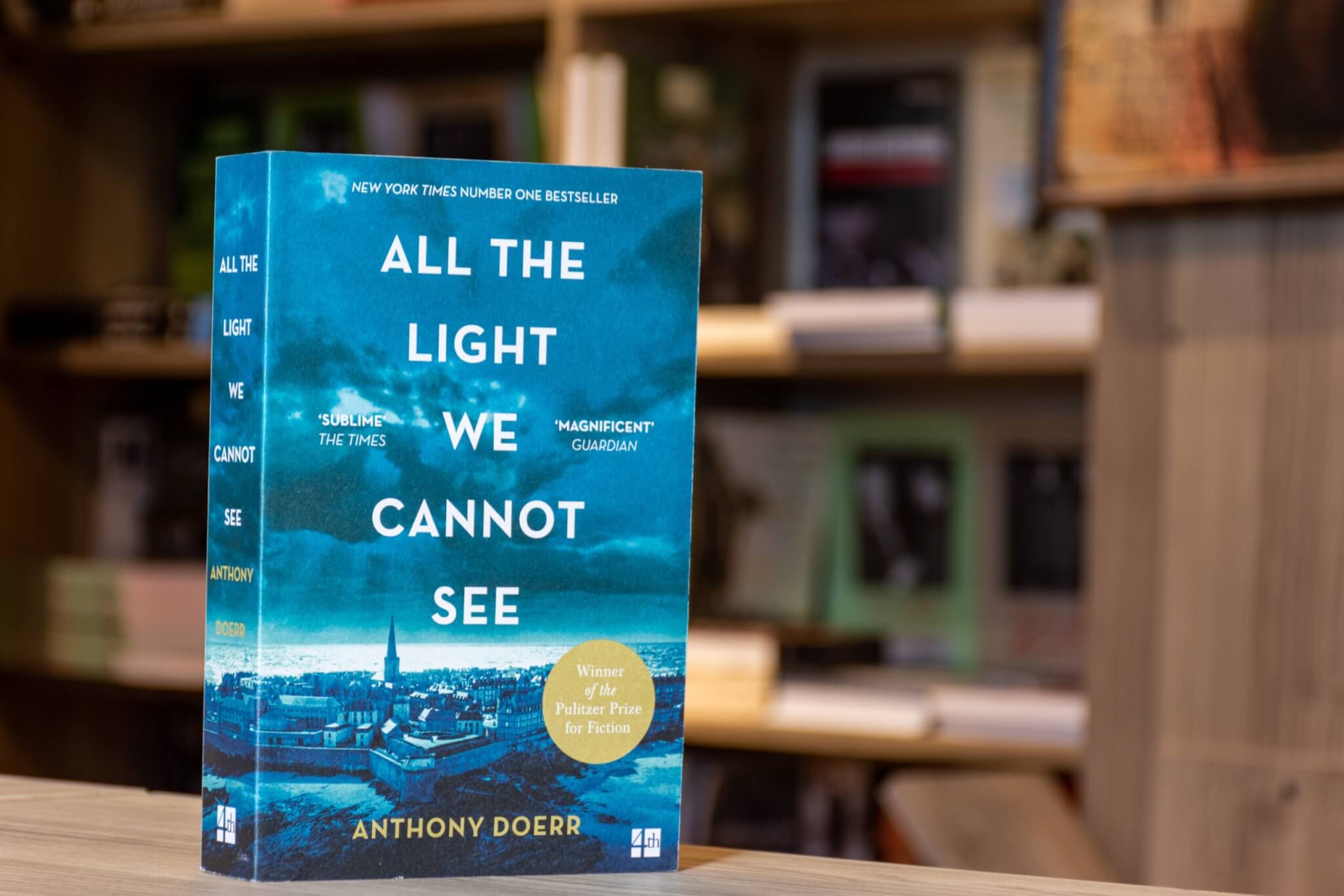
The List: Best World War II Books, According to Experts
1. “All The Light We Cannot See” by Anthony Doerr
This Pulitzer Prize-winning novel from Anthony Doerr is a must-read for any WWII connoisseur. “With alternating points of view and intricate storytelling that interweaves the stories and lives of a blind French girl and a German boy, this moving book will linger in your mind long after you’ve finish it,” writes Barnes & Noble. “If you want a book that will remind you of the way that people try to be good to each other against all odds, then this book will warm that place in your heart that’s looking for a little bit of sunshine after months of clouds.”
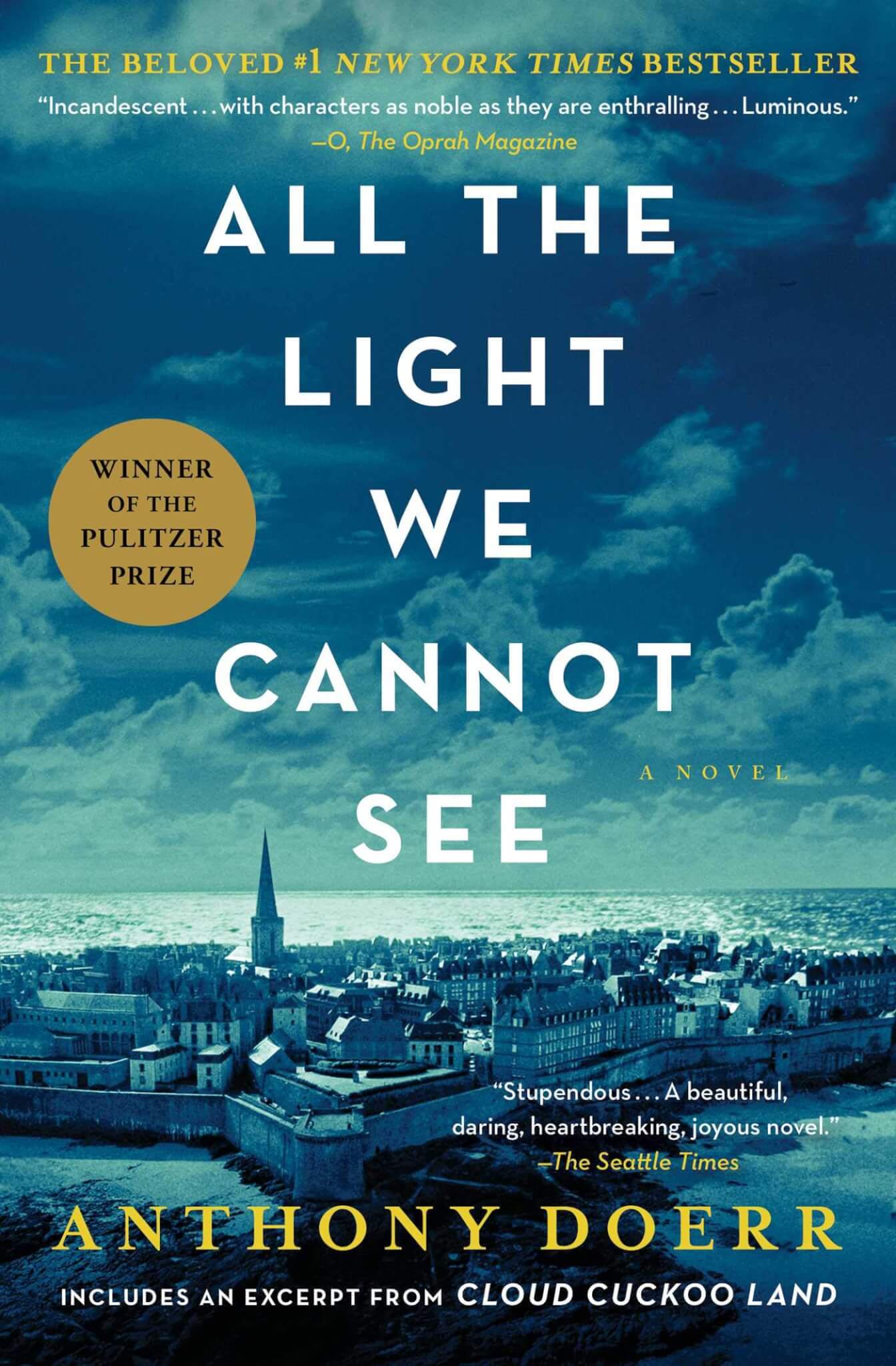
“In this stirring novel, two teenagers are caught up in the frenzy and the mortal dangers of World War II: a German boy who is extraordinarily clever with all things electronic, and a blind French girl who reads Jules Verne,” notes Mal Warwick On Books. “Author Anthony Doerr explores the trajectory of their lives in parallel, moving them inexorably toward a fateful intersection in the book’s surprising climax.”
The Booklist Queen says Doerr’s “writing is fabulous.” “Anthony Doerr masterfully interweaves the stories of Marie-Laurie, a blind French girl who flees from Paris to the coastal city of Saint-Malo with her uncle, and Werner, a German radio operator charged with rooting out the French resistance. While the plot is interesting in and of itself, the character development and storytelling will keep you glued to the page.”
2. “Unbroken: A World War II Story of Survival, Resilience and Redemption” by Laura Hillenbrand
From the author of “Seabiscuit,” Laura Hillenbrand penned the amazing true story of how Louis Zamperini — a track and field star in the 1936 Berlin Olympics — survived after being stranded in the Pacific Ocean and captured by the Japanese. “On a May afternoon in 1943, an Army Air Forces bomber crashed into the Pacific Ocean and disappeared, leaving only a spray of debris and a slick of oil, gasoline, and blood,” writes Book Riot. “Then, on the ocean surface, a face appeared. It was that of a young lieutenant, the plane’s bombardier, who was struggling to a life raft and pulling himself aboard.”
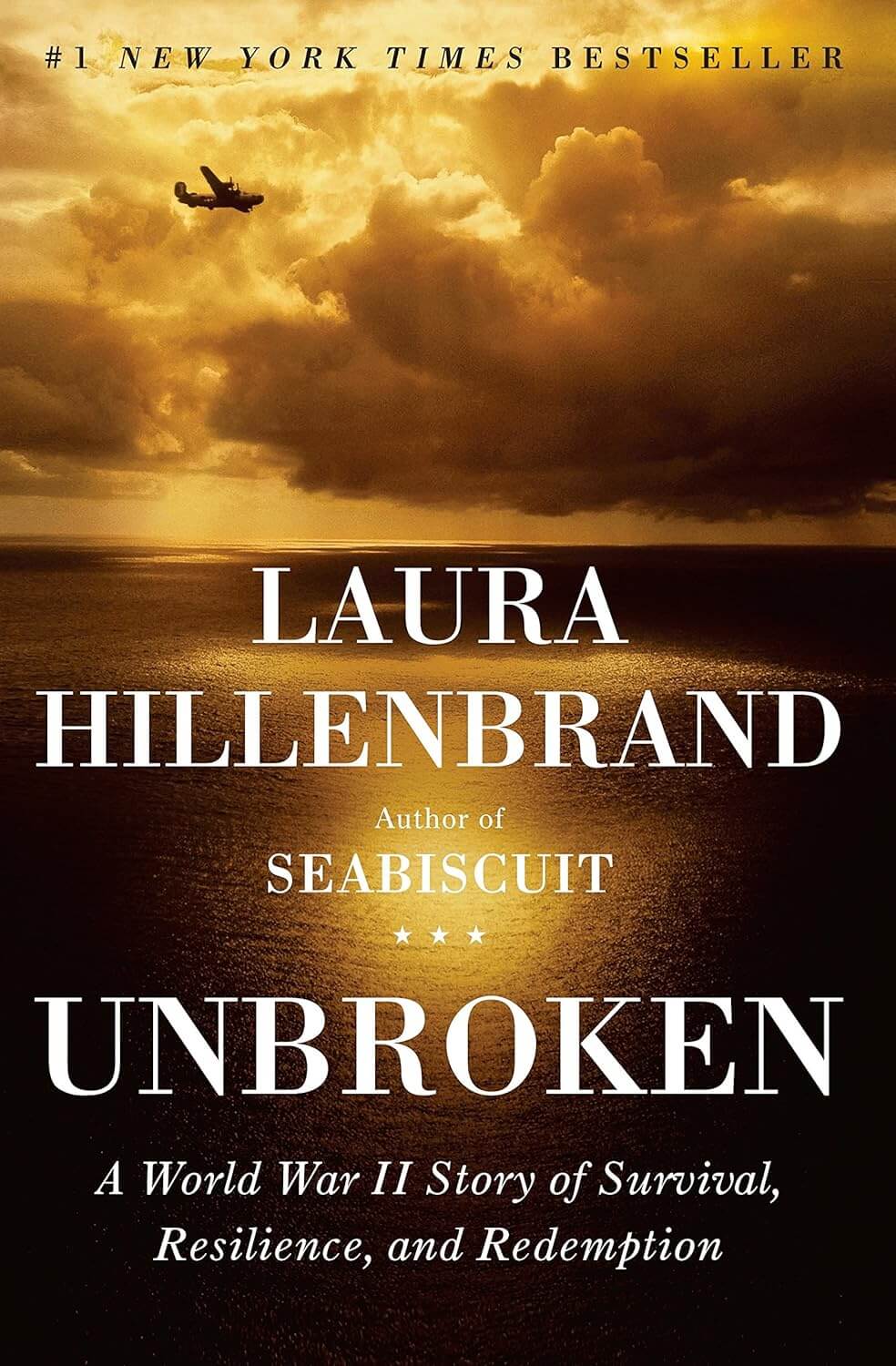
“Unbroken is a non-fiction book written by Laura Hillenbrand and published in 2010,” notes SOFREP. “The book chronicles the experiences of Louis Zamperini, an Olympic runner captured by the Japanese during World War II.”
Hillenbrand’s work was the basis of two movies: “Unbroken” and “Unbroken: Path to Redemption.” “Unbroken is one of the most famous nonfiction books about WW2. Louis Zamperini, a once athlete in the Berlin Olympics, becomes an airman–having no idea the fate that awaits him,” says The Uncorked Librarian. “In May of 1943, his plane crashes over the Pacific Ocean, leaving him lost at sea and floating on a precarious raft.”
3. “Catch-22” by Joseph Heller
Joseph Heller’s “Catch-22” is one of the best non-fiction WWII books you will pick up and not be able to put down. “Set in Italy during World War 2, bombardier Yossarian is ironically a little upset that all of these people are trying to kill him,” says The Uncorked Librarian. “He’s even more worried that his own army is going to kill him before the enemy does. Yossarian wants out but how? Yossarian finds himself in a Catch-22: He can’t claim insanity to get out of the army because doing so most likely proves the opposite.”
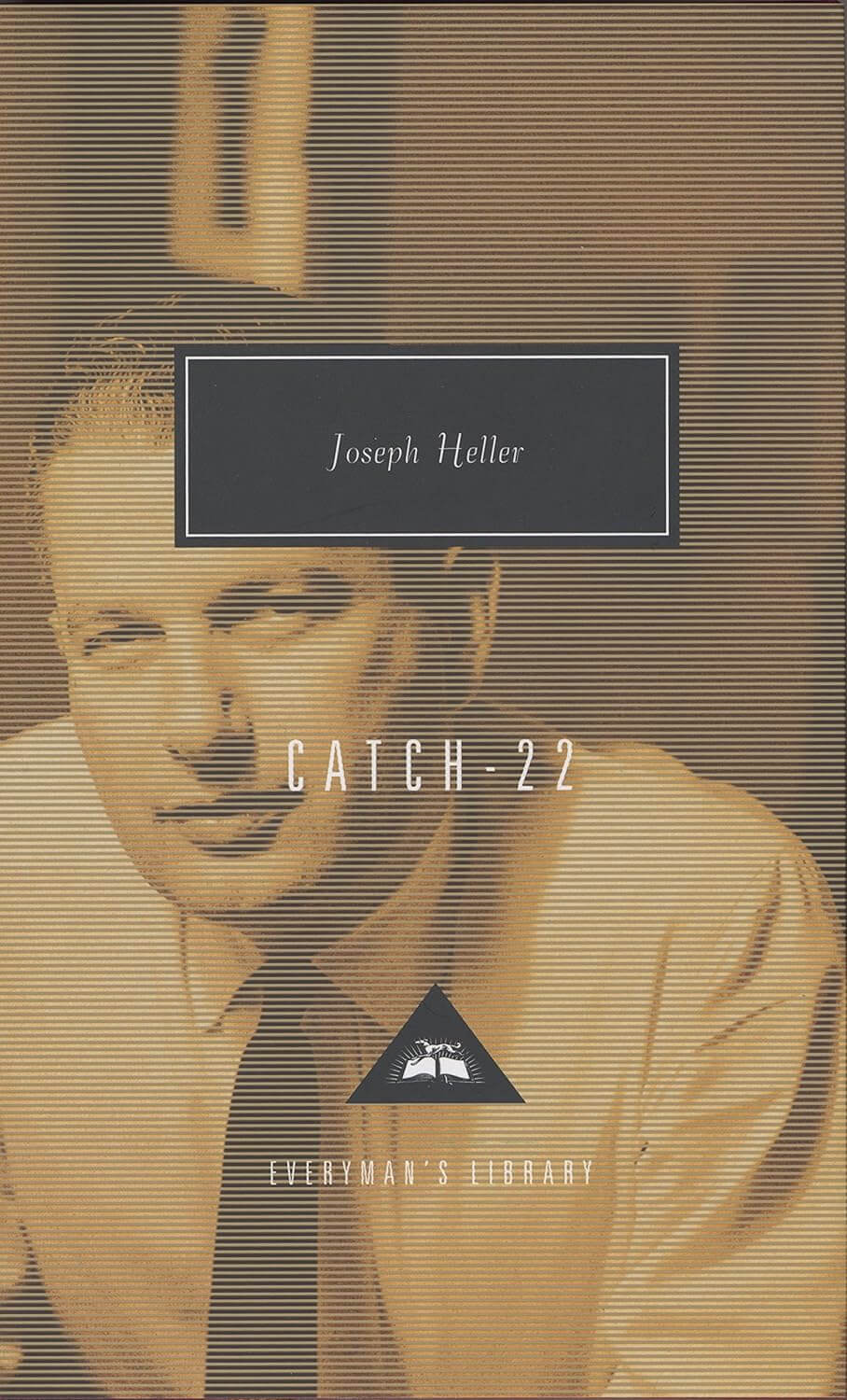
“Among its other virtues, Catch 22 contains one of the three great insights of the 20th century,” writes Shepherd. “They are (in alphabetical order by discoverer): ‘The observer is part of the event’ (Albert Einstein); ‘You can’t know everything’ (Werner Heisenberg) and ‘Your own officers are as interested in killing you as the enemy’ (Joseph Heller). Einstein gave us the atom bomb, Heisenberg gave us lasers, and Joseph Heller gave us the best novel of the 20th century. I’ve now read it seven times, and it never disappoints.”
The Booklist Queen wasn’t initially a fan of Heller’s novel, but it eventually grew on her. “Heller’s brand of satire involves stories that are over-the-top exaggerations, and he’s never heard of character development. Yet, a few months after I finished it, random bits from the book would pop up in my mind and make me laugh. The man whose name is Major Major Major Major. The Allies bombing their own bridge. I promise you, you’ll either love this book or hate this book. But, if you are in the right frame of mind, you’ll eventually see why this book earned its place in the Top 10 World War 2 Books.”
4. “The Longest Day” by Cornelius Ryan
Cornelius Ryan interviewed more than 1,100 D-Day survivors for “The Longest Day,” making it one of the more conclusive accounts of the Allied invasion of Normandy. “Ryan experienced the battle firsthand as a 24-year-old reporter for the Daily Telegraph. When the bomber he was flying in was hit and had to return to England, he jumped into a patrol boat and returned to cover the fighting on the French beaches,” notes The Archive. “Fifteen years later, Ryan set out to tell ‘what actually happened, rather than what generals or others thought happened.’ The result is a masterpiece of military history packed with novelistic details, from the U.S. paratrooper who won $2,500 at cards on the eve of the battle but deliberately lost it all so as not to run out of luck to Field Marshal Rommel’s reason for being 600 miles away when the invasion began–he was bringing his wife her birthday present.”
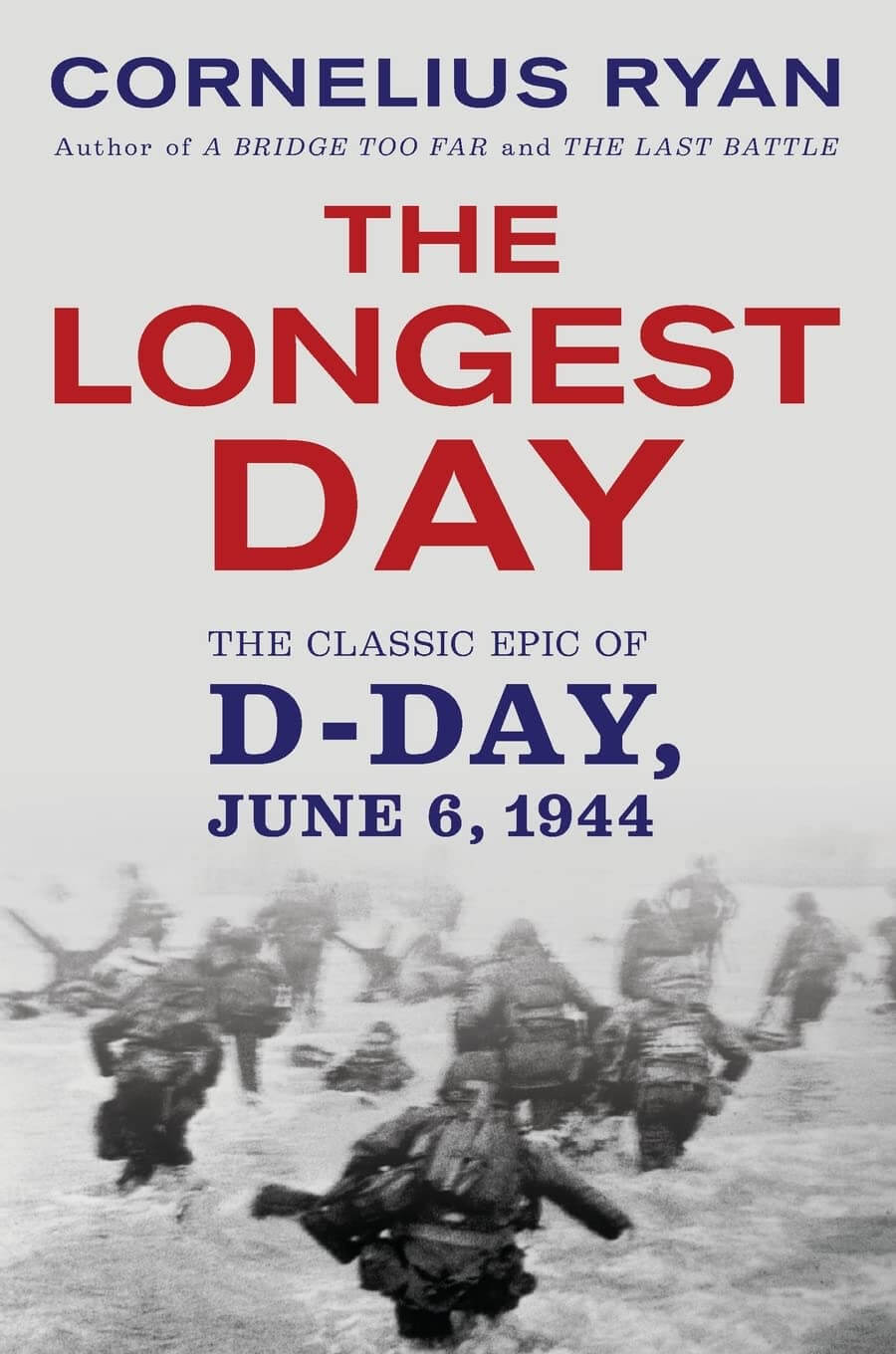
“The Longest Day is history as it should be told: exciting, detailed, clear-headed, and page-turning,” writes Shepherd. “It’s the story of the D-Day landings which marked the beginning of the end of World War 2 in Europe, told from both the Allied and the German perspectives.”
John Wayne and Henry Fonda ended up starring in “The Longest Day,” based on Ryan’s novel. “The Longest Day is a non-fiction book written by Cornelius Ryan and published in 1959,” says SOFREP. “The book chronicles the Allied invasion of Normandy on June 6, 1944, better known as ‘D-Day.’ The Longest Day was adapted into a film of the same name in 1962.”
5. “The Diary of a Young Girl” by Anne Frank
Anne Frank’s “The Diary of a Young Girl” might be the most famous book coming out of World War II. Anne and her Jewish family hid in a shop’s attic when the Nazis invaded Holland, but were unfortunately found. “Throughout her time in concealment, Anne records her thoughts and dreams that she will never see through to fruition,” writes The Uncorked Librarian. “We visited the Anne Frank House in Amsterdam a few years ago where you can still see photos of movie stars pinned to the walls. The somber feeling of Anne’s hiding spot as you ascend the staircase behind the bookshelf brings to life the terrors caused by the Nazis in everyday lives.”
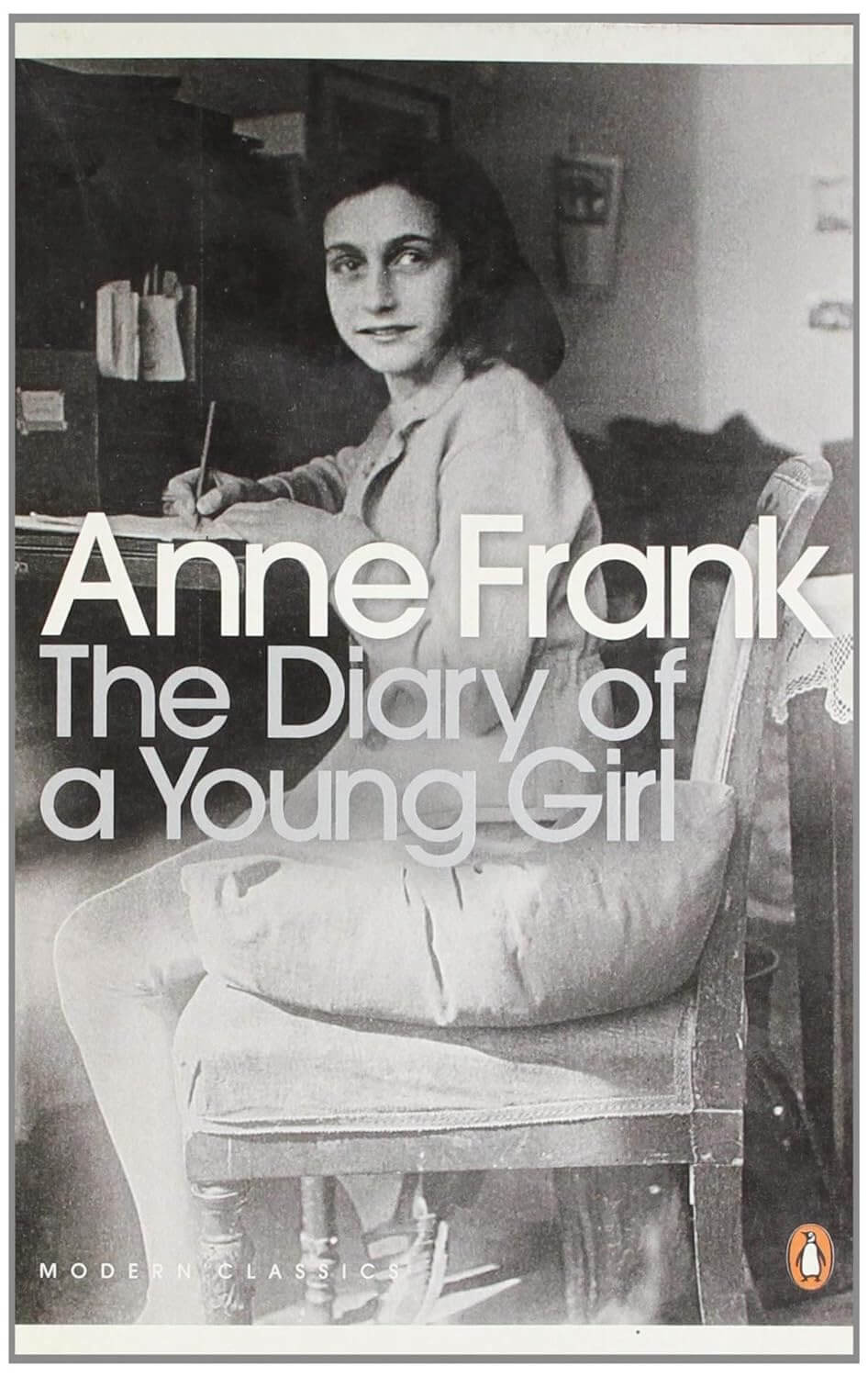
“Anne Frank: The Diary of a Young Girl is a historic diary written by Anne Frank, a Jewish girl hiding from the Nazi regime during World War II,” notes SOFREP. “The journal covers the period from June 1942 to August 1944 and provides a unique insight into the life of a Jewish family in hiding during the war. Anne Frank: The Diary of a Young Girl was first published in 1947 and has since been translated into many languages.”
Anne Frank’s diary remains a must-read for any age. “The Diary of a Young Girl… continues to bring to life this young woman, who for a time survived the worst horrors the modern world had seen—and who remained triumphantly and heartbreakingly human throughout her ordeal,” states Book Riot.
You might also be interested in:
Sources:
- Penguin
- Five Books
- The Archive
- Mal Warwick On Books
- Booklist Queen
- SOFREP
- The Uncorked Librarian
- Shepherd
- Book Riot
- Barnes & Noble
Note: This article was not paid for nor sponsored. StudyFinds is not connected to nor partnered with any of the brands mentioned and receives no compensation for its recommendations. This article may contain affiliate links.

I agree with most of your choices as great books about WW II, but except for Catch 22 they are non-fiction, not “novels”. Removing them would open spots for novels such as The Caine Mutiny, From Here to Eternity, Winds of War and The Wall.
I don’t think it’s possible to rank fiction and nonfiction books together as they have substantially different objectives and constraints. As two obvious examples, composite characters and “artistic license” are commonplace in fiction but inexcusable in nonfiction.
I love the two book historical novel saga on WWII “The Winds of War” and “War and Remembrance”, by Herman Wouk. Best historical novel I’ve ever read: the story is so well told, the characters are wonderful, and the historical background is so well interleaved. I just love it!
Hello? Do any of you experts know the meaning of the word “novel”?! Nice list except for the title.
Three of these books are NON-FICTION. The only novels on this list are Catch 22 and All the Light We Cannot See.
Please, get it right, this is a ridiculous mistake to make.
Since when do non-fiction works (three of five) get classified as novels?
You should include Night by E. Wiesel in your list.
A non-fiction book to add is Night by Elie Wiesel. Also, non-fiction books are not considered novels.